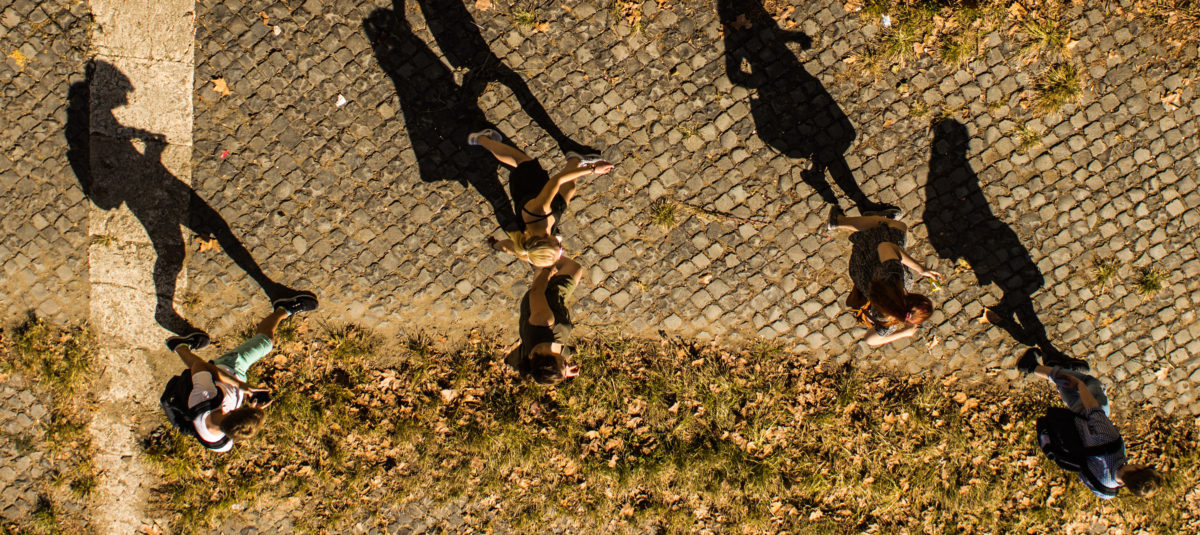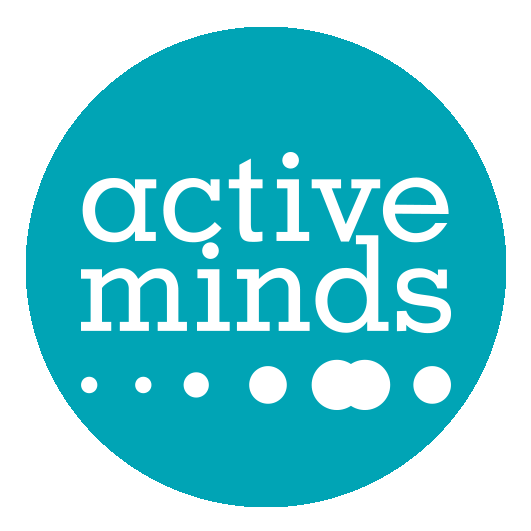A note from Active Minds: Many people have found 13 Reasons Why triggering. In making your own decision to watch or not watch, we encourage you to review this resource from the Jed Foundation and SAVE. Markie’s perspective below is one of the many nuanced ways that mental health advocates and organizations have responded to 13 Reasons Why and we present her thoughts as a way to continue the conversation. Additional note that several spoilers are mentioned below.
Content Warning: This piece contains mentions of suicide.
In the spring of 2008, I was bullied. Even though these girls were in 8th grade, they had the ability to make me feel the size of an ant. They left me out, spread rumors behind my back and used me anytime they could. One of my other friends was also living with severe depression and attempted suicide.
This was a lot for a 14-year-old girl. So, on a rainy evening in April, at my local bookstore, I found a book that I thought might tell me why one of my best friends didn’t want to live anymore, why these girls at school didn’t see me as an equal. Most importantly, why when I was shouting out to the whole world for help, no one was answering. That book was 13 Reasons Why. Not only did this book help me to get some of these questions answered, but it created more questions— the questions I needed to be asking.
I am now a 23-year-old graduate student, but the new series based on the book did the same thing to me — it answered some of my questions, and is making me ask more. As advocates, it is our job to help facilitate these conversations. Recognizing that these are hard to do, here are 13 ways to continue the conversation about 13 Reasons Why.
- Say “died by suicide” instead of “committed suicide.”
Hannah Baker did not “commit” suicide, she “died by suicide.” Why? Because suicide is not a crime, it is an unfortunate ending, often to a long battle with mental illness. When we use language like “committed,” we perpetuate a culture of blame on the victims, which makes people afraid to admit they are having thoughts about suicide. It also shames those who attempt suicide, adding to the stigma rather than providing support.
- Help others recognize their privilege.
I don’t speak for all women, but I know that I cannot be the only one who has been objectified by someone. This issue is dismissed in many of the reviews of the series. It isn’t just a women’s issue — anyone can experience sexual harassment or assault. If you have had the privilege of never having someone think that they had the right to treat you as less than human, take time to hear from those of us who have had these experiences. If you hear people dismiss issues that don’t affect them, call them out on it.
- Watch 13 Reasons Why with your parents.
If I were a parent and I saw my kid running around with cassette tapes for a week, noticed their bike was missing, and saw scars on their face, I would be concerned, too. But, setting aside that aside, the parents in the series were clueless about their children’s lives.
Parents need context for what is going on and to learn how to help. I know. “Do I want to watch some of those scenes with my parents?” I watched Gossip Girl with my mom in high school. Remember some of the things that went down in that? There were six seasons. You can do this.
- Bring social class into the conversation.
As we saw Justin admire Bryce’s family and get pushed around by his mom’s boyfriend, his character pulled in the theme of social class into the series.
Justin felt so inferior to Bryce that he was afraid to stop or report the rape he knew Bryce committed. Bryce supported Justin. That made Justin feel indebted to him.
Digging deeper, Justin feared power and didn’t trust authority. He didn’t have the social/cultural capital to make connections with school professionals like Marcus and Courtney had. This left him feeling alone. We need to be aware of social class differences and how they affect people’s experiences.
- Educate yourself and others on sexual assault.
We can probably agree that Bryce’s comments about the rape were disturbing. The fact that this 18-year-old boy could not define what rape is, is terrible and a statement about how we are educating young adults about sexual assault and harassment. If you cannot define sexual assault and know the difference between assault and harassment, put this article on pause and look these things up. Then work on educating those who may not understand.
- Hold your school accountable. Be a part of movements for change.
Liberty High was reactive — hanging posters about drunk driving after a student had been killed drunk driving and posters about suicide after a student had died by suicide. The students did not respond well. Schools need to have these conversations before a tragedy.
We play a role in seeking justice and raising awareness. Host a suicide awareness week, apply for the Send Silence Packing® tour or an Active Minds Speaker to come to your campus. The best thing you can do is help prevent tragedies by letting people know they are cared for and help is available.
- Think critically about pornography.
Clay realized the picture of Courtney and Hannah had affected him, too. He had used their picture for pleasure, but after listening to Courtney’s tape, he deletes the picture and all the pornographic images on his computer. My arms flew up in victory, not just for Clay but for all.
A man who was committing the crime of stalking took the photo at the expense of the dignity and respect of Hannah and Courtney. But let’s talk about how a lot of porn is actually produced. Some porn comes at the expense of women trafficked into sex slavery, some porn comes at the expense of women who leave their families to film porn because they feel they have few other options. Let’s start talking about where porn comes from and how, in many instances, it perpetuates rape culture and oppression.
- Don’t be afraid to question mental health professionals.
We cannot afford for mental health professionals to respond to students the way Mr. Porter, the school counselor, did. Beyond telling Hannah to ride out the next two months because her rapist will soon graduate, he disregarded Hannah’s thoughts of suicide.
There are A TON of skilled mental health professionals out there who work every day to ensure their clients’ wellness. However, for those not doing it well, we need to call them out. As advocates, we can help make sure our schools’ resources are quality. If we don’t call out a bad practice, then we run the risk of deterring a person who has gained the courage to try counseling from returning.
- Take a vow to stop using the words “bitch,” “slut,” and “whore.”
Again, language matters. When we use words like “bitch,” “slut,” and “whore” to describe women, we are perpetuating a culture in which we label, shame, and objectify women. In the show, it was never “Hannah Baker, the amazing poetry writer” or “Hannah Baker, the smart, witty girl who stands up for herself.” It was “Hannah Baker, best ass in the sophomore class.” When we call women or anyone these names, we take away their humanity. As we saw in the series, these ideas about a person can spread.
- Get certified in QPR or Mental Health First Aid.
Think about getting certified in QPR (Question Persuade Refer) or Mental Health First Aid to develop the skills to help someone in crisis. Ask you campus counseling center if they offer QPR or Mental Health First Aid certification. If your campus does not offer these programs, look up where you can get certified in your local community or reach out to Active Minds for more information.
- Recognize that Counseling Centers are many times a “white space.” Start talking about what inclusivity looks like.
Mr. Porter is a black, male counselor at Liberty High. That is pretty cool! Why? Because there are not many mental health professionals who identify as people of color. (Side note: if there aren’t enough people of a certain identity being represented in a specific space, it isn’t helpful to portray them in that space negatively.)
Most counseling centers are predominantly white spaces. Many students of color are not feeling that their experiences are validated. This is a huge problem. We need to include students of color and multicultural groups in our efforts. Listen to their perspectives. Advocate for inclusive hiring practices.
- Make connections with people different from you.
We are tempted to surround ourselves with people who are like us in interests and identities. The more we do that, the less we allow ourselves to learn new things about the world and about people.
Here’s a quick activity: think about aspects of who you are. What identities do you hold (i.e. race, ethnicity, gender, sexual orientation, ability, social class, religion)? Now, think about the five people you are closest to. How are they different from you? How are they the same? Think about what you’ve learned through those relationships, and recognize that there is so much more you could be learning by getting to know other people.
- Reflect on your thoughts about the series with others.
What ideas came as you watched the series? Anything you saw that you never thought about before? Did anyone in the series make you consider a new perspective? Take time to think about it.
Then, talk to other people who have watched the series. Gather their thoughts, too. Start thinking about the issues presented in the series and start asking questions. Maybe even write a blog post like this one. This is the way we are going to create change on our campuses. Everyone has their own unique ideas. Trust me when I say, the world wants to hear yours.




